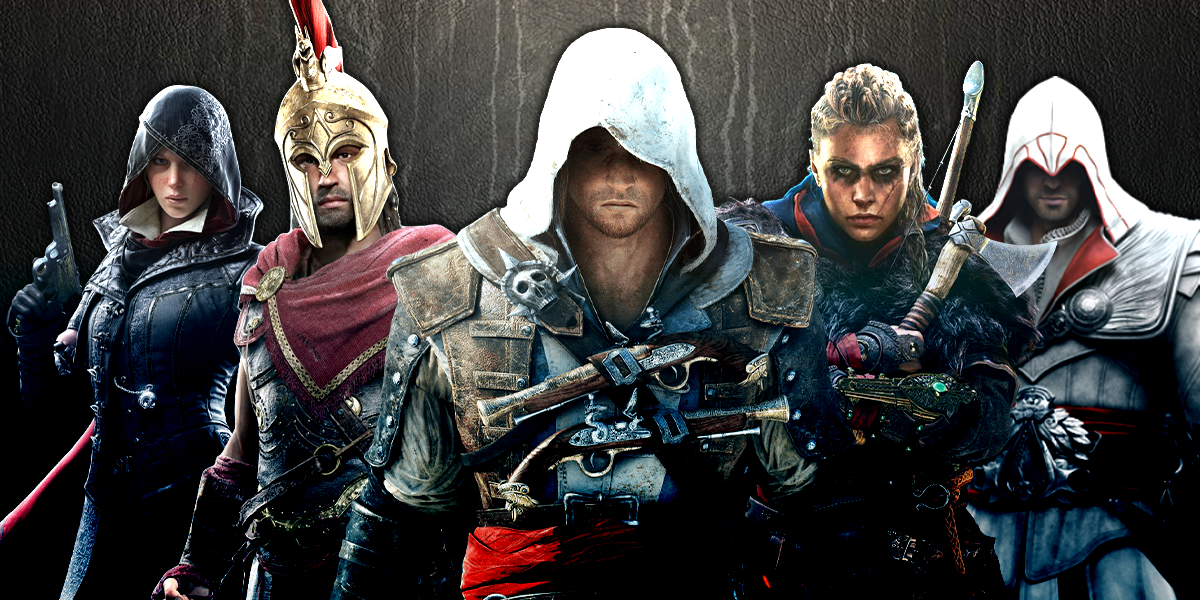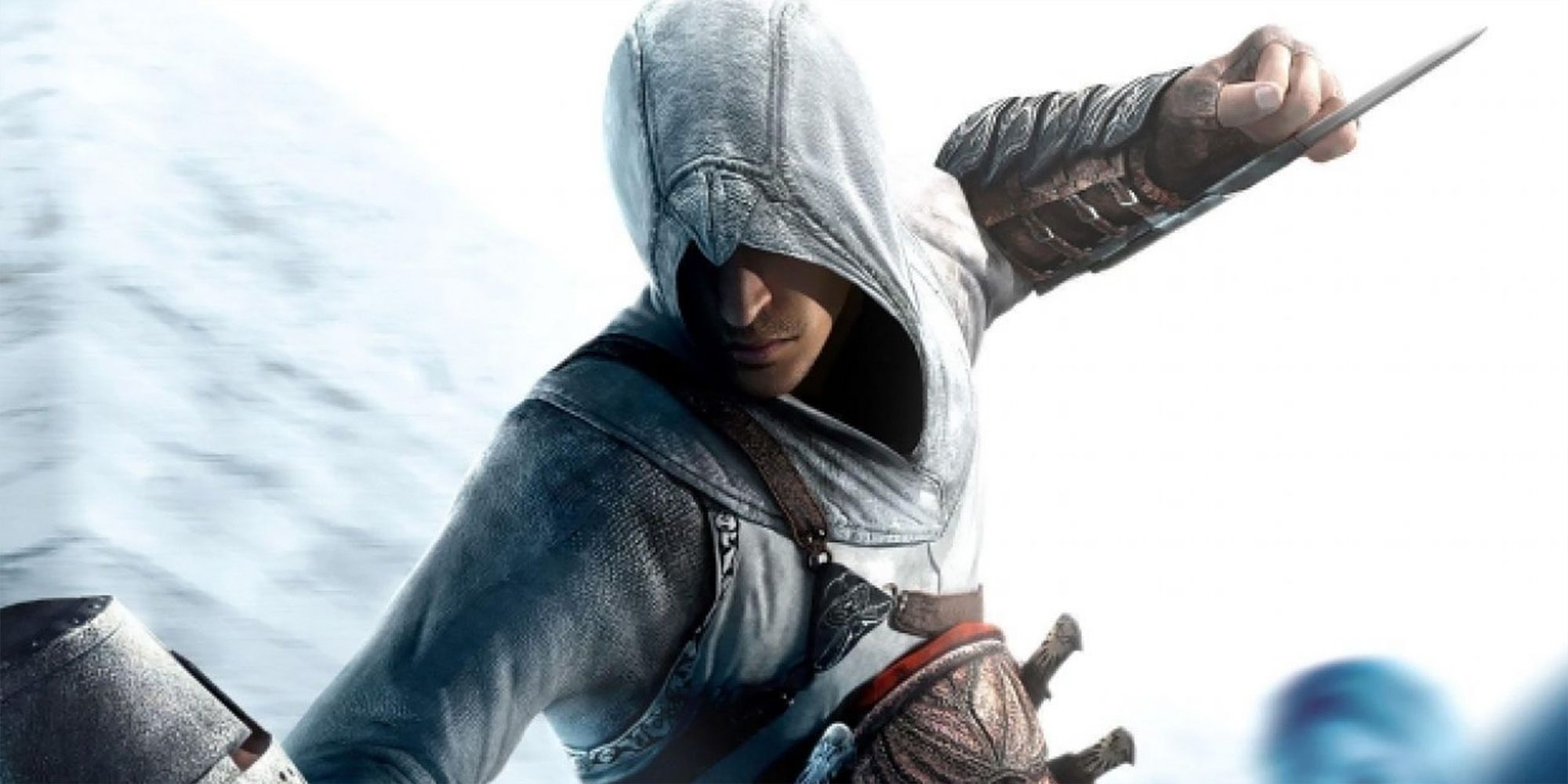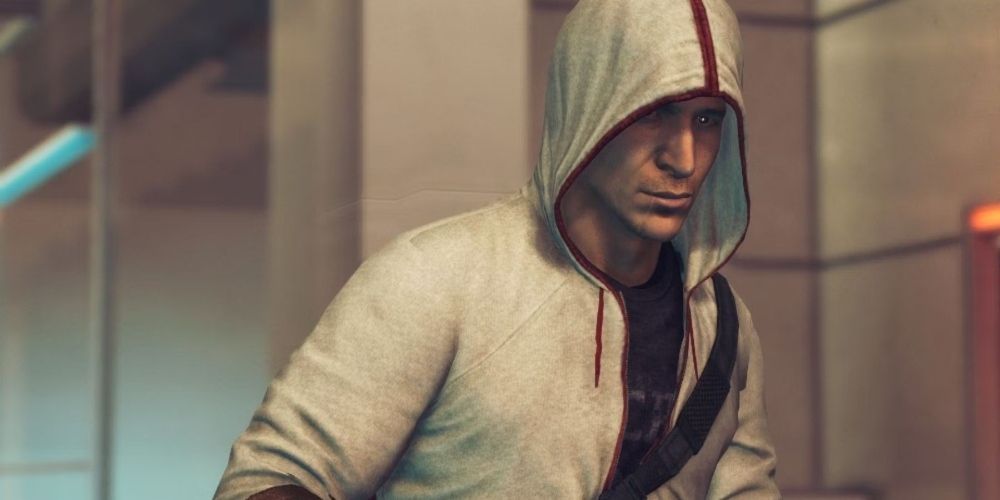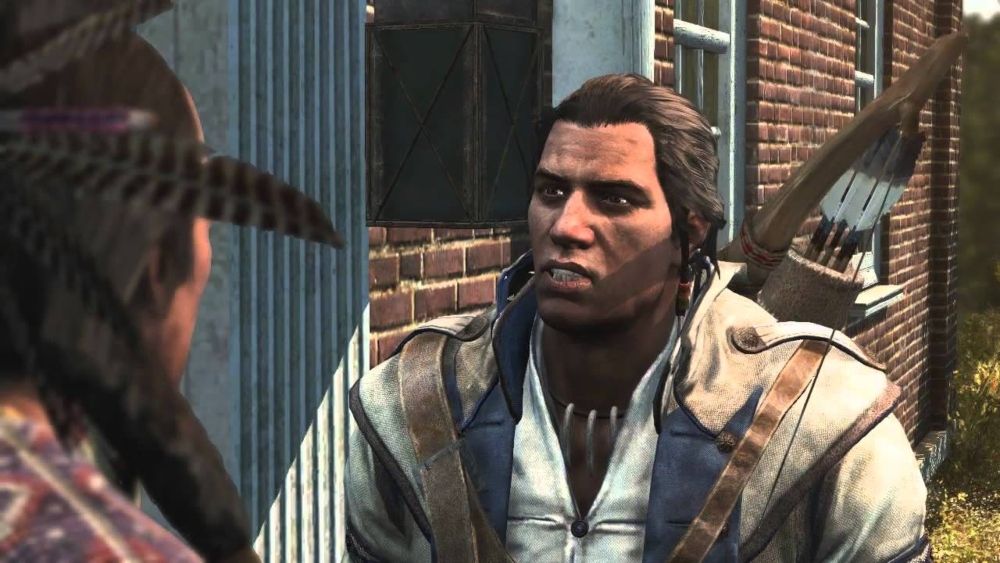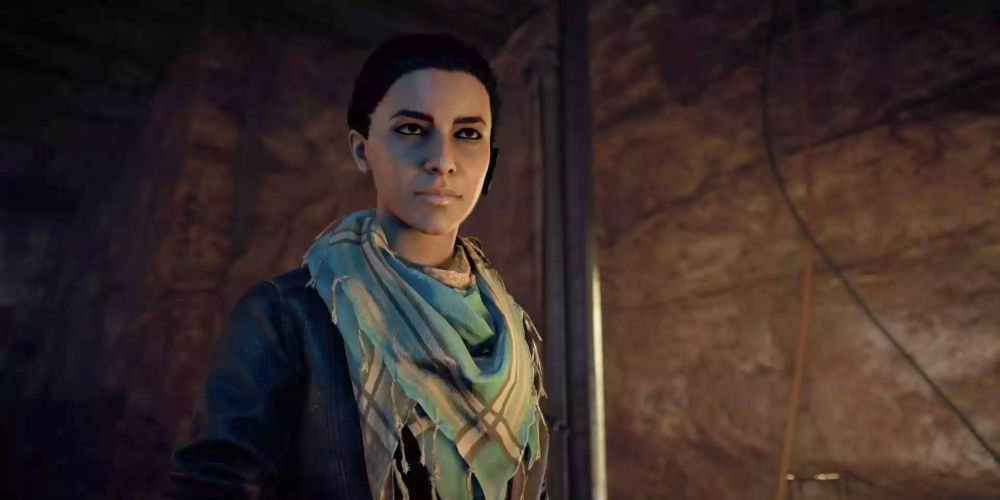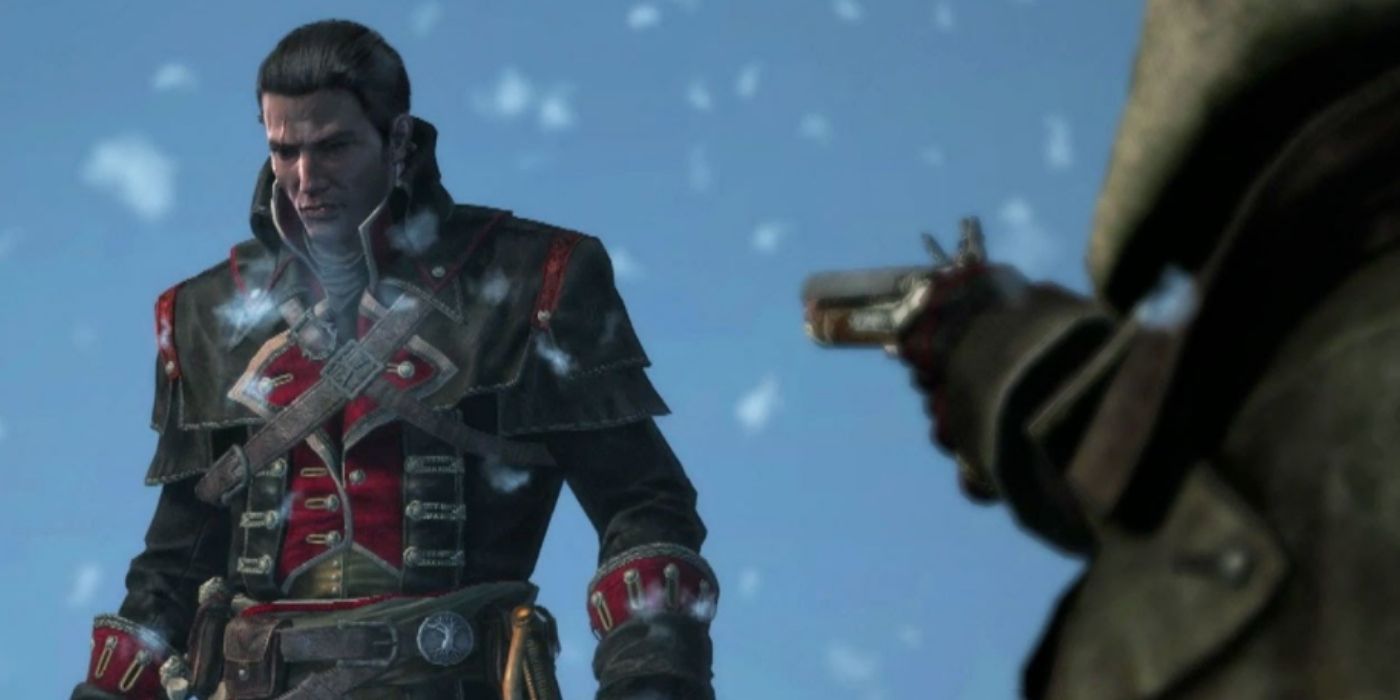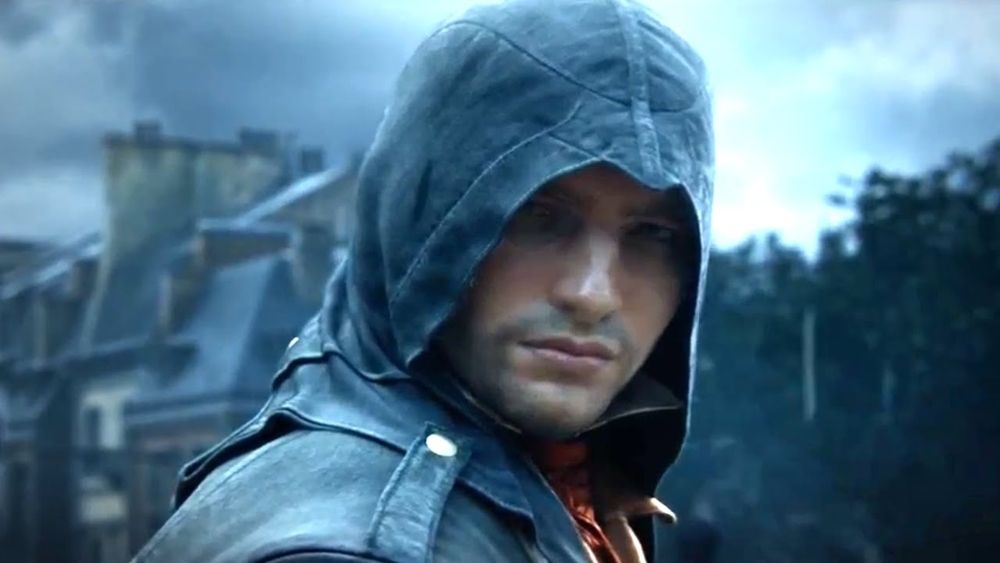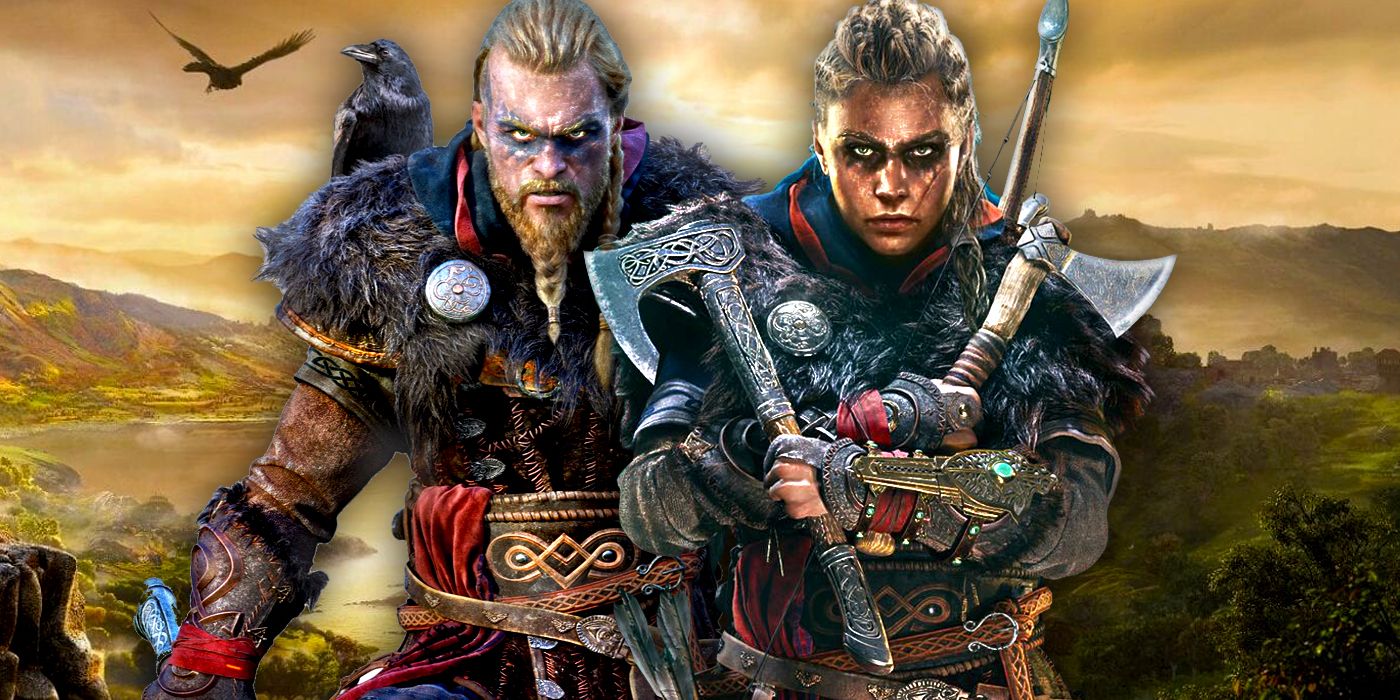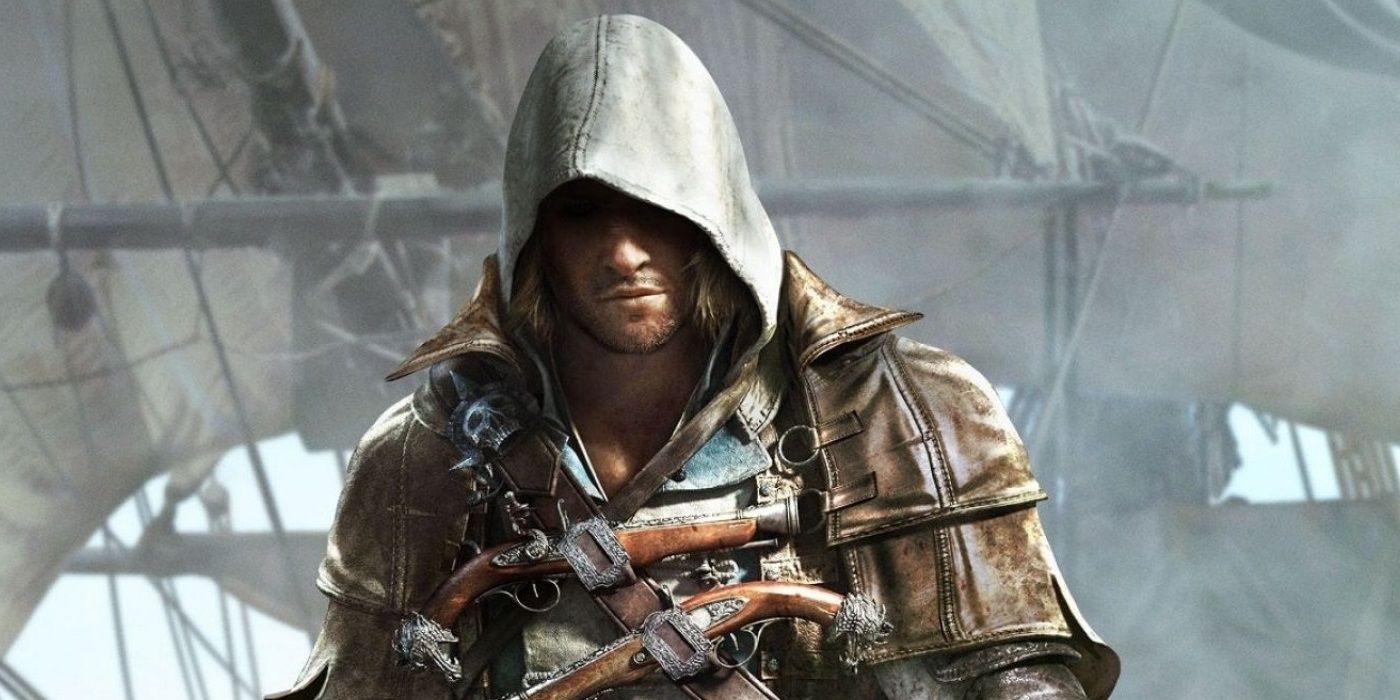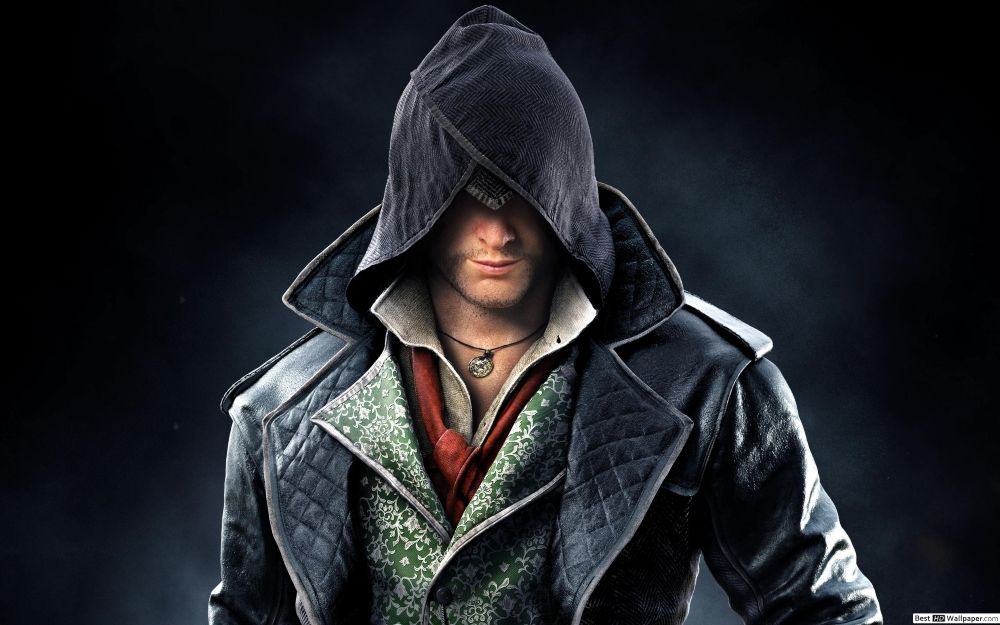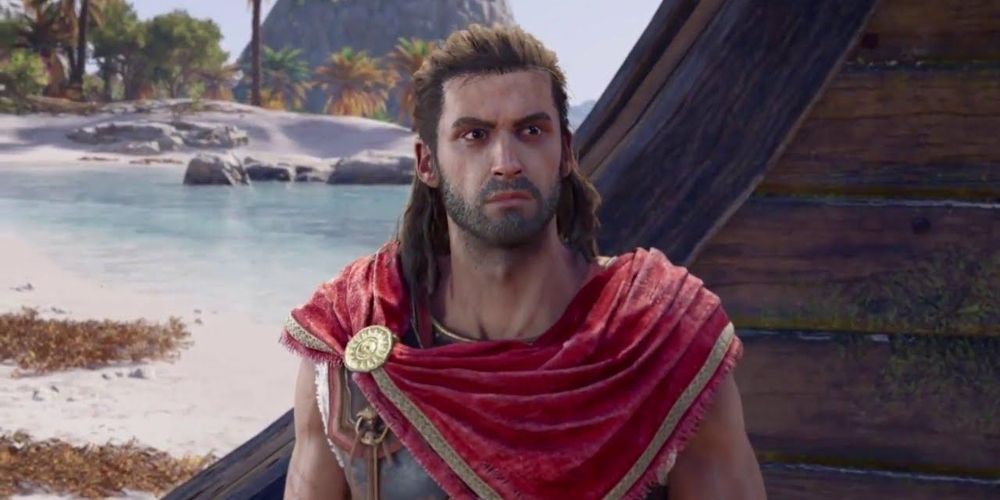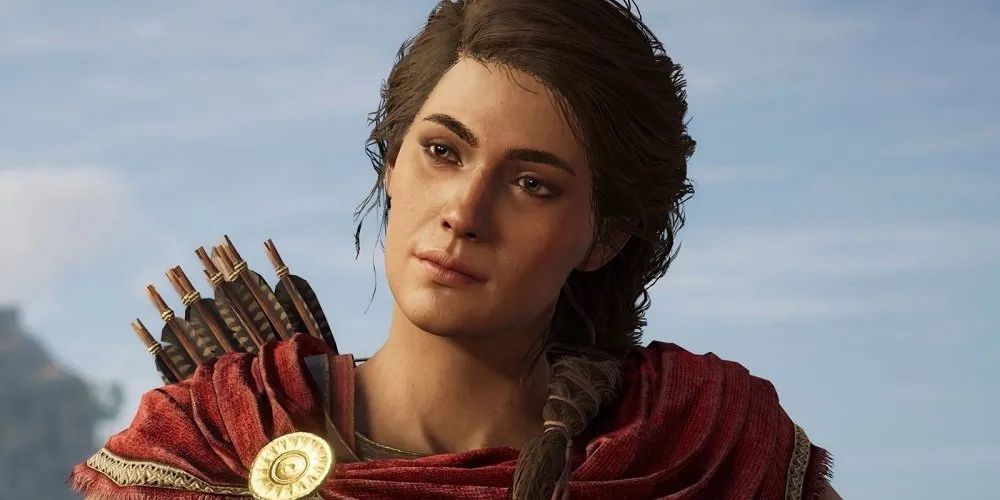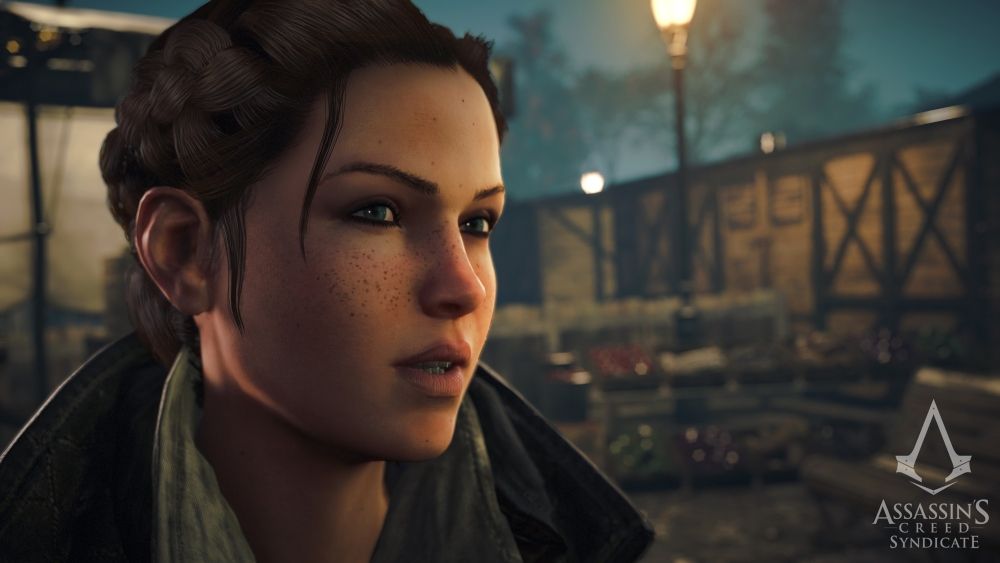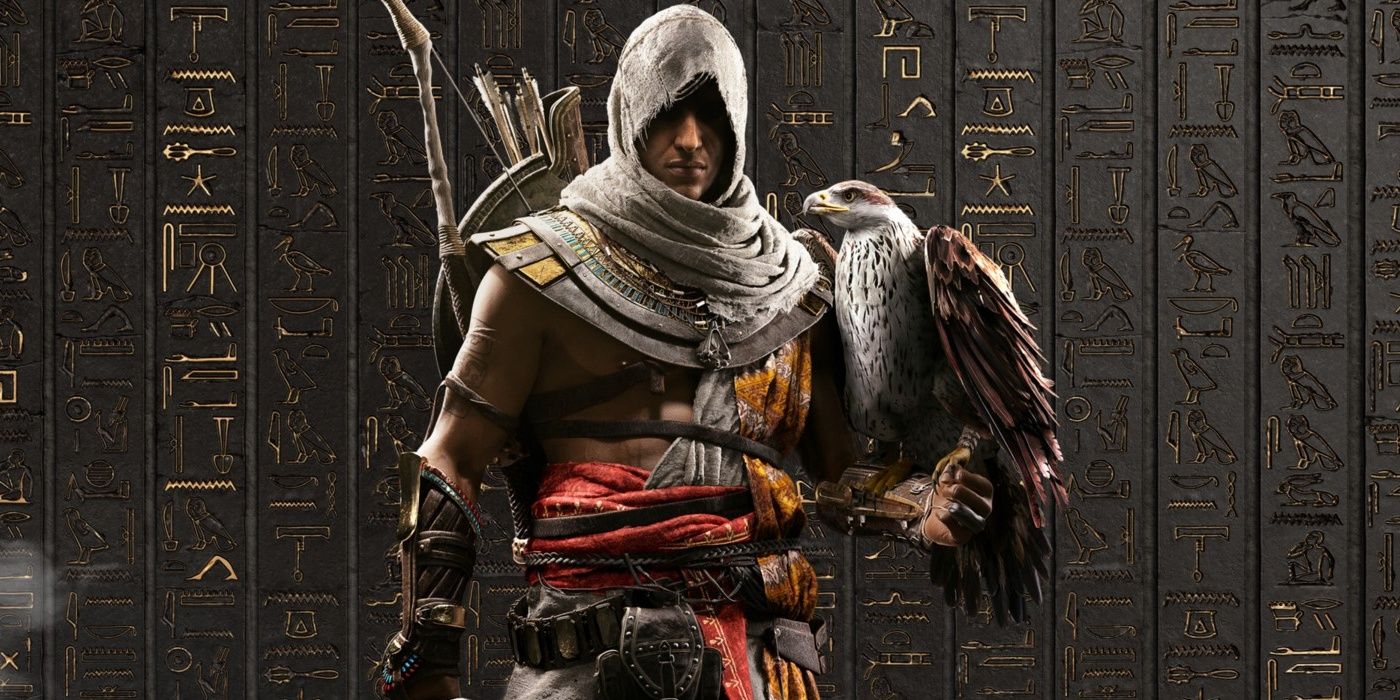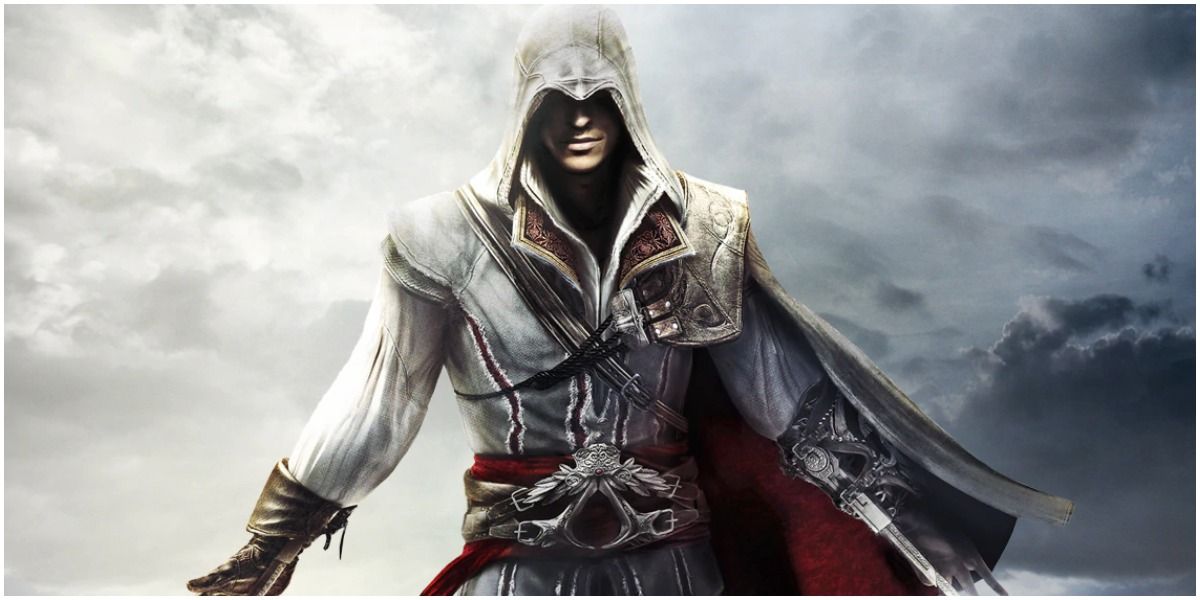Due to its time-hopping nature, the Assassin's Creed franchise has had a number of protagonists. For each historical time period the games explore, new protagonists are introduced. Complicating things, the series splits itself into two storylines: the ever-shifting historical plots, and the overarching real-world storyline with more consistent protagonists.
The Assassin's Creed's franchise often aims to make their main characters distinct and likable. Some characters inevitably miss the mark, coming across as boring, unpleasant, or both. Others quickly become memorable favorites thanks to their relatable qualities and the mysterious intrigue surrounding them.
Updated 6th July, 2022 by Isaac Williams: Assassin's Creed is well-known for having two simultaneous storylines: its historical epics and its overarching present-day sagas. The main characters of its out-of-animus storylines are protagonists in their own right, and so have been included in this list to better-represent the entire series.
15 The Present-Day Test Subjects Are Deliberately Lacking Characterization
Following Desmond Miles' death in Assassin's Creed III, and prior to Layla Hassan's introduction in Assassin's Creed: Origins, the games continued expanding their present-day plotline. They introduced a series of first-person protagonists who'd come to work with Abstergo Industries.
The player controls three of these characters between Black Flag, Rogue, Syndicate and Unity, and each is largely indistinguishable from the others. To make them as immersive as possible, the characters are portrayed as blank slates without any notable traits. Designed to represent the player and little more, the first-person protagonists lack intrigue.
14 Altaïr Ibn-LaʼAhad Is Only Likable When He's Older
The first playable assassin, Altaïr holds a special place in the franchise. The first historical protagonist, he's an iconic figure in the game's storyline and aesthetics. The game's story is a deliberately humbling experience for Altaïr, highlighting his room to grow.
Although somewhat intended, the game fails to help players warm up to Altaïr as he's broken down and forced to become a better person over the course of the story. Altaïr is often rude, dismissive, and arrogant, but Assassin's Creed: Revelation portrays him in a different light. Further along in his years, Altaïr possesses a warmer demeanor and his maturity is emphasized.
13 Desmond Miles Is Less Interesting Than His Ancestors
The modern-day plot remains one of Assassin's Creed's more controversial elements. Some fans believe it adds another level to the storytelling, links the separate historical storylines together well, and is interesting in its own right. Others find it boring, pretentious, or distracting from the more-interesting historical sections.
The protagonist Desmond Miles experiences similar scrutiny. While he has likable qualities, some feel he's too generic. Others find him overly angsty, feel he wastes his potential, or believe he lacks agency in his storyline.
12 Connor Kenway Is Sullen And Withdrawn
Assassin's Creed III takes the series to Colonial America just before the American Revolution, casting the player in the role of Ratonhnhaké:ton. Also going by Connor Kenway, he has his supporters. Some fans like Connor's gentle nature and the way he's used to explore racial themes, but others find him one of the franchise's least likable characters.
Coming after the beloved Ezio Auditore, the audience may be harder on Connor than they would be in any other game. Nonetheless, many feel Connor's impulsive tendencies and sullen behavior overshadow his more positive attributes.
11 Layla Hassan Is A Divisive Addition To The Present-Day
After being treated as an afterthought in several games, the present-day storyline received more focus and a new protagonist in Assassin's Creed Origins, continuing through Odyssey and Valhalla. Layla Hassan was an Egyptian woman who refined Animus technology with Abstergo. She later went on the run after Abstergo sought to silence her.
Both Layla's storyline and her characterization appeal to some fans while alienating others. Her behavior can come across as selfish, inconsistent, and self-sabotaging. To others, these traits make her more interesting than her predecessors.
10 Shay Cormac Is Primarily Interesting For His Differing Perspective
Assassin's Creed Rogue is the third entry in the franchise's North American saga and the first game to have its historical protagonist be an avowed Templar. After unintentionally causing a tragedy, Shay Cormac becomes disillusioned with the Assassin's Brotherhood and joins the franchise's recurring villains.
Aside from his role in the story, Shay's characterization feels like a retread of several other characters. However, he still wins supporters for his clash of loyalties, his genuine regrets over his prior actions, and his devotion to the Templars.
9 Arno Dorian Is More Flawed Than Most Series Protagonists
Taking place in Revolutionary France, Assassin's Creed: Unity introduces Arno Dorian. His upbringing is more luxurious than other protagonists, and he possesses some genuinely sympathetic traits, but sometimes his emotions work against him.
Arno divides Assassin's Creed fans. Some believe he's a compassionate and likably-flawed character who tries to see the best outcome in difficult situations. Others view him as a self-indulgent and naive man who revels in his own irresponsibility. Arno's possessive pursuit of his love interest and his pitiful behavior after his expulsion only add fuel to the fire.
8 Eivor Grows On You
Assassin's Creed: Valhalla takes a different approach to its choice of protagonists. The player always controls Eivor, rather than having a choice between two characters, but they can decide Eivor's gender when the game starts. A Viking with a moral code, Eivor raids England to build up their clan, but never tends towards wanton cruelty or pointless violence.
Although there are some contentious moments, Eivor is a fairly wise protagonist who's passionate about doing right by their own. While Eivor isn't a standout for the series, plenty of fans find the character likable.
7 Edward Kenway Has A Moving Redemption Story
Edward Kenway is the protagonist of Assassin's Creed IV: Black Flag and the grandfather of Assassin's Creed III protagonist Connor. Tying in with Black Flag's status as one of the most popular games in the franchise, Edward is a well-liked protagonist for a number of reasons.
For one, Edward possesses more charisma than almost any character in the franchise. He's daring, funny, and likable in most things he does. For another, he has a genuinely emotional story, redeeming himself from his criminal ways and reuniting with his family.
6 Jacob Frye Is Hotheaded But In A Fun Way
Assassin's Creed Syndicate introduces the concept of two main protagonists to the franchise. Throughout the game, players control both Jacob and Evie Frye, twins born into the Assassins. The pair become leaders of the Rooks, a gang in Victorian London who oppose Templar control.
Jacob's role in the game is to actively hunt and combat the Templars, a role he relishes. Although one of the franchise's most aggressive protagonists, many players find Jacob's distinctiveness and charisma a refreshing change of pace.
5 Alexios Comes Across As Slightly Less Interesting Than His Counterpart
After Syndicate's approach of letting the player switch between the Frye twins, Assassin's Creed Odyssey introduces a new twist. At the start of the game, the player picks between Alexios and Kassandra, controlling that character while the other becomes an antagonist.
Alexios and Kassandra are very similar. Regardless who's chosen, most cutscenes play out the same way, and the dialogue is largely identical. Between them, Alexios isn't as compelling. Some view him as having lower-quality voice acting, less chemistry with many NPCs, and a less interesting design.
4 Kassandra Is The Slightly More Likable Sibling
Neither of Assassin's Creed: Odyssey's main characters are disliked, and both have their ardent fanbases. As similar as Kassandra and her brother Alexios are, there are particular elements that tip fan appreciation in Kassandra's direction.
For many fans, Kassandra has a more original design and better voice acting. In addition, many appreciate her for being the game's canonical protagonist, and for being the first female protagonist in the franchise who's playable throughout the whole game.
3 Evie Frye Is Relatable And Charming
The other protagonist of Assassin's Creed: Syndicate, Evie Frye fights throughout London against the Templars' influence alongside her brother Jacob. In comparison to her brother's gang war, Evie is more preoccupied with tracking the Isu Piece of Eden through London, attempting to reach it first.
Both Frye siblings are well-liked protagonists, but many players prefer Evie's more charming and determined personality, her elegant and distinctive design, and her fighting style. As such, she edges ahead of her brother.
2 Bayek Is A True Assassin
Alongside his wife Aya, the Egyptian Medjay named Bayek of Siwa is the founder of the Hidden Ones, the organization that would evolve into the Assassin Brotherhood. At the beginning of Assassin's Creed Origins, Bayek's main role is to protect his people, but his and Aya's purposes change when their son Khemu is killed, parting ways to pursue his son's killers in the Order of the Ancients.
Bayek's tale of revenge and grief lead him to create the iconic Creed of the Hidden Ones, lines players of the franchise know by heart. With his major role in the story, his competence, his endearing personality, and his relationships with others, Bayek stands out to many as one of the most noble and likable characters in the series.
1 Ezio Is Loved By All
There's no denying Ezio Auditore de Firenze is the most iconic character in the Assassin's Creed franchise. The star of three games, he remains the Assassin many people call to mind when they think of it. Suave and charismatic but with an undercurrent of pain and genuine emotion, Ezio is the ideal figure to explore Renaissance Italy.
Fans enjoy Ezio's developing character over his story's many decades. From a hedonistic youth, to an emotion-driven killer, to a more balanced leader and finally to the pinnacle of an old Assassin master who revives the Brotherhood from its brink, Ezio has one of the best arcs of any Assassin's Creed character.

